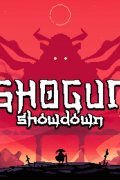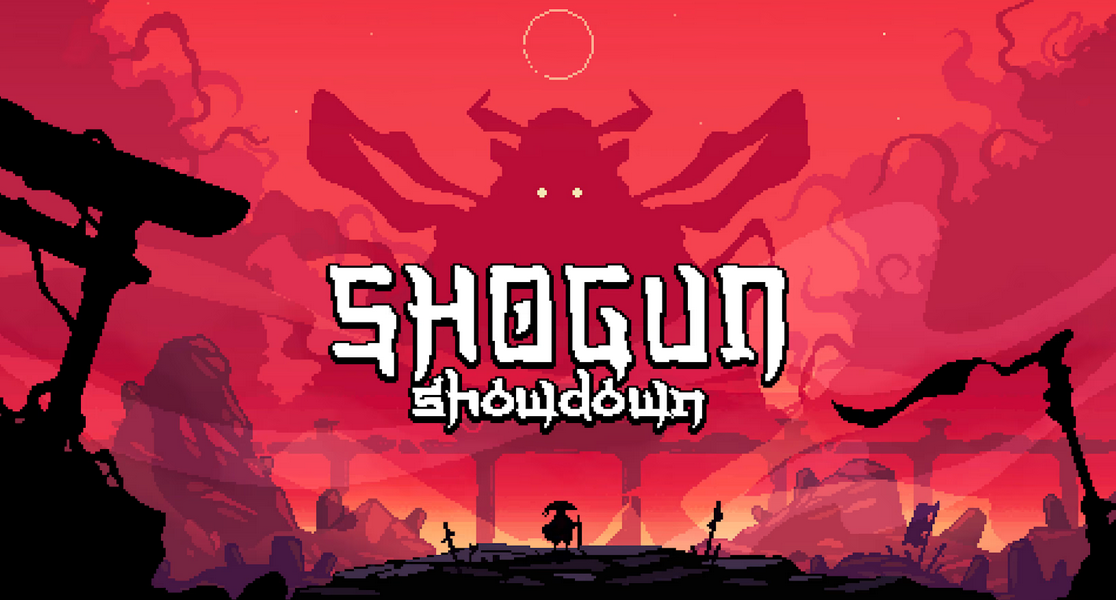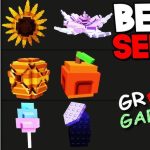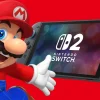Shogun Showdown – Game Review
Shogun Showdown is a turn-based strategy roguelike that blends tactical grid-based combat with deck-building mechanics. Developed by Rokas and released on PC, the game takes inspiration from traditional Japanese culture and martial arts, immersing players in a world of strategic duels where every move counts. With its unique blend of careful planning, card-based abilities, and a roguelike progression system, Shogun Showdown offers a compelling, highly tactical experience for fans of turn-based combat and deck-building games.
Let’s dive deeper into the various aspects of this game to see what makes it stand out.
Gameplay and Mechanics
Shogun Showdown offers a tactical and methodical approach to combat, where players must anticipate their enemy’s moves and strategically position themselves on a grid. Every move and attack is turn-based, and decisions need to be calculated as a wrong step can lead to a devastating defeat.
- Turn-Based Grid Combat The core gameplay takes place on a small, grid-based battlefield where players face off against AI enemies in a duel-like scenario. Each battle is a back-and-forth struggle as you and your opponent take turns moving across the grid, attacking, and positioning for advantage. The combat is simple in appearance, but the strategic depth comes from predicting your enemy’s movements and attacks, using your skills at the right time, and managing your deck effectively.
- Deck-Building Mechanics One of the most innovative aspects of Shogun Showdown is its deck-building system, where players collect and upgrade cards that represent their attacks, defensive maneuvers, and special abilities. These cards are the lifeblood of your combat strategy, with each card representing a different attack style (such as sword strikes, ranged attacks, or powerful finishing moves). As players progress, they unlock new cards and upgrades, allowing them to build stronger, more versatile decks. The balance between offense and defense is key, as players need to anticipate their enemies’ attacks while also preparing their own. You can’t simply rush into combat; careful consideration of which card to play and when is crucial.
- Roguelike Progression Shogun Showdown incorporates roguelike elements, meaning each run is procedurally generated and different every time you play. With each attempt, you will collect new cards, learn from mistakes, and fine-tune your strategy. Like many roguelikes, death is permanent, but each defeat brings the opportunity to learn, grow stronger, and unlock new abilities for future runs. The game’s roguelike structure keeps it engaging by encouraging players to take risks and experiment with different strategies while building up a stronger deck across multiple runs.
- Combat Abilities and Combos A unique aspect of the combat in Shogun Showdown is the ability to string together combos using cards. Players can perform powerful chain attacks by setting up the right card combinations, leading to devastating hits that can quickly turn the tide of battle. Timing and placement are key, as executing combos often requires precise movement and positioning on the grid. Mastering these combos adds another layer of depth to the gameplay and rewards players who are willing to invest time in learning the nuances of their deck.
Visuals and Art Style
The game’s visuals are striking and minimalistic, with a pixel-art aesthetic that brings to life its feudal Japanese setting. The character designs, animations, and environments are simple yet effective, evoking a sense of style and culture while keeping the focus on the tactical nature of the gameplay. The samurai-inspired characters are well-detailed, and their movements on the grid feel fluid, enhancing the immersion of the tactical duels.
The game’s color palette is bold and sharp, using contrasting tones to highlight attacks, abilities, and environmental hazards. This simplicity in design ensures that players can easily follow the action on the battlefield without being overwhelmed by excessive visual details.
Difficulty and Learning Curve
Shogun Showdown is a challenging game, especially for those new to tactical turn-based strategy or deck-building mechanics. The game demands patience and precision, as even a single wrong move can lead to failure. However, its difficulty is part of its appeal, as players are encouraged to experiment and learn from their mistakes.
The game features a relatively steep learning curve, particularly for mastering the nuances of deck-building and understanding how to optimize combos and strategies. However, this learning curve is well-balanced by the rewarding sense of progress after each run, as players gradually become more skilled and better equipped to face tougher enemies.
The progression system is fair and balanced, offering meaningful upgrades and new cards that allow for greater experimentation in future runs. As with most roguelikes, trial and error play a big role, but Shogun Showdown always feels fair rather than punishing.
Replayability
Replayability is one of Shogun Showdown’s greatest strengths. The procedural nature of its roguelike design ensures that no two runs are the same. Players are constantly faced with new challenges, enemies, and card combinations to experiment with. The game’s depth comes from the variety of strategies that can be explored through different decks, encouraging multiple playthroughs.
Additionally, the game offers plenty of unlockables, including new cards, abilities, and upgrades that keep each run fresh and rewarding. For those who enjoy refining their skills and perfecting strategies, Shogun Showdown offers endless opportunities to do so.
Sound and Music
The sound design in Shogun Showdown complements its minimalistic aesthetic, with crisp audio effects that punctuate each attack, block, and special ability. The soundtrack features traditional Japanese instruments and melodies that evoke the game’s samurai setting while adding tension and atmosphere to the combat.
While the music is subtle and often takes a back seat to the strategic action, it effectively enhances the game’s mood without being intrusive. The focus remains on the tactical gameplay, but the audio elements help to immerse players in the world of feudal Japan.
What Could Be Improved
- Lack of Story Depth:
While the game excels in its mechanics, it lacks significant narrative depth. The story is minimal, serving primarily as a backdrop to the action. Players looking for a rich, character-driven plot may be disappointed by the game’s focus on gameplay over storytelling. - Steep Learning Curve:
Although the game’s difficulty is part of its appeal, it may be intimidating for newcomers to the genre. A more comprehensive tutorial or gradual difficulty ramp could make the game more accessible to casual players. - Limited Variety in Early Enemies:
The variety of enemies can feel limited in the early stages of the game, which may lead to a sense of repetition. However, this improves as players progress and face tougher, more diverse opponents in later runs.
Conclusion
Shogun Showdown is a brilliantly designed tactical roguelike that challenges players to think strategically and master the art of combat through careful deck-building and grid-based movement. Its simple yet effective visuals, deep combat mechanics, and high replayability make it a standout title for fans of turn-based strategy and roguelikes.
While its difficulty may deter some players, those who enjoy a challenge will find Shogun Showdown to be a rewarding and engaging experience. The game’s combination of strategy, planning, and execution creates a satisfying loop that keeps players coming back for more.
System Requirements for Shogun Showdown
Windows Minimum:
OS *: Windows 7/8/10
Processor: 1.7+ GHz or better
Memory: 1 GB RAM
Graphics: Intel HD Graphics 3000 or better
Storage: 500 MB available spaceMacOS Minimum:
OS: OS X 10.7 or more recent
Processor: 1.7+ GHz or better
Memory: 1 GB RAM
Storage: 500 MB available space
SteamOS + Linux Minimum:
OS: Ubunut 18.04 or more recent
Processor: 1.7+ GHz or better
Memory: 1 GB RAM
Graphics: Intel HD Graphics 3000 or better
Storage: 500 MB available space
Pros
- Deep and rewarding tactical gameplay
- Innovative deck-building and combo mechanics
- High replayability with roguelike elements
- Stylish pixel-art aesthetic
Cons
- Steep learning curve for newcomers
- Minimal narrative depth
- Limited variety in early enemies
In This Article














